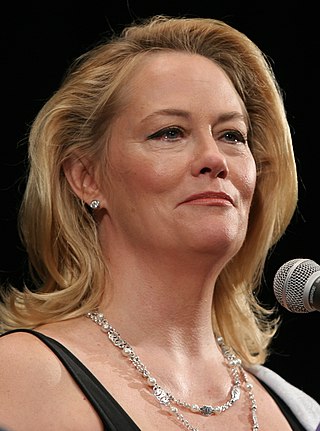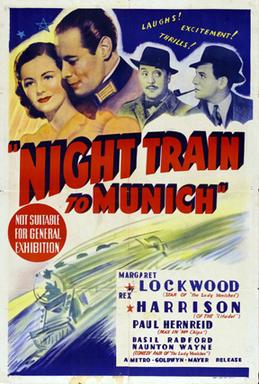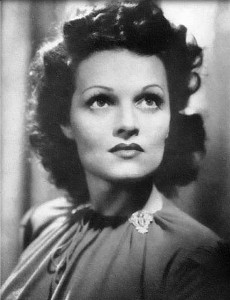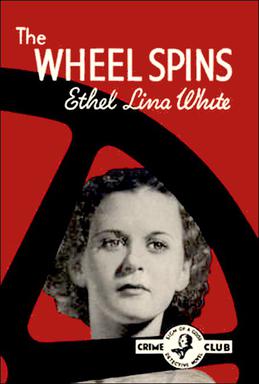
Cybill Lynne Shepherd is an American actress and former model. Her film debut and breakthrough role came as Jacy Farrow in Peter Bogdanovich's coming-of-age drama The Last Picture Show (1971) alongside Jeff Bridges. She also had roles as Kelly in Elaine May's The Heartbreak Kid (1972), Betsy in Martin Scorsese's Taxi Driver (1976), and Nancy in Woody Allen's Alice (1990).

Ian Gillett Carmichael, was an English actor who worked prolifically on stage, screen and radio in a career that spanned seventy years. Born in Kingston upon Hull, in the East Riding of Yorkshire, he trained at the Royal Academy of Dramatic Art, but his studies—and the early stages of his career—were curtailed by the Second World War. After his demobilisation he returned to acting and found success, initially in revue and sketch productions.

Naunton Wayne, was a Welsh character actor, born in Pontypridd, Glamorgan, Wales. He was educated at Clifton College. His name was changed by deed poll in 1933.

Dame Mary Louise Webster,, known professionally as May Whitty and later, for her charity work, Dame May Whitty, was an English stage and film actress. She was one of the first two women entertainers to become a Dame. The British actors' union Equity was established in her home in 1930.
George Axelrod was an American screenwriter, producer, playwright and film director, best known for his play The Seven Year Itch (1952), which was adapted into a film of the same name starring Marilyn Monroe. Axelrod was nominated for an Academy Award for his 1961 adaptation of Truman Capote's Breakfast at Tiffany's and also adapted Richard Condon's The Manchurian Candidate (1962).

Arthur Basil Radford was an English character actor who featured in many British films of the 1930s and 1940s.

Night Train to Munich is a 1940 British thriller film directed by Carol Reed and starring Margaret Lockwood and Rex Harrison. Written by Sidney Gilliat and Frank Launder, based on the 1939 short story Report on a Fugitive by Gordon Wellesley, the film is about an inventor and his daughter who are kidnapped by the Gestapo after the Nazis march into Prague in the prelude to the Second World War. A British secret service agent follows them, disguised as a senior German army officer pretending to woo the daughter over to the Nazi cause.

Florence Lindon-Travers, known professionally as Linden Travers, was a British actress.

William Henry Mettam "Robin" Bailey was an English actor. He was born in Hucknall, Nottinghamshire.

Mary Clare Absalom was a British actress of stage, film and television.

The Lady Vanishes is a 1938 British mystery thriller film directed by Alfred Hitchcock, starring Margaret Lockwood and Michael Redgrave. Written by Sidney Gilliat and Frank Launder, based on the 1936 novel The Wheel Spins by Ethel Lina White, the film is about an English tourist travelling by train in continental Europe who discovers that her elderly travelling companion seems to have disappeared from the train. After her fellow passengers deny ever having seen the elderly lady, the young woman is helped by a young musicologist, the two proceeding to search the train for clues to the old lady's disappearance.

Jenny Runacre is a South African actress. Her film appearances include The Passenger (1975), The Duellists (1977), Jubilee (1978), The Lady Vanishes (1979), and The Witches (1990).

Charters and Caldicott is a 1985 BBC mystery series featuring the characters Charters and Caldicott from the Hitchcock film The Lady Vanishes updated to a 1980s setting. It comprised six 50-minute episodes broadcast on BBC1 at 9.25pm on Thursdays from 10 January to 14 February 1985.

Charters and Caldicott started out as two supporting characters in the 1938 Alfred Hitchcock film The Lady Vanishes. The pair of cricket-obsessed characters were played by Naunton Wayne and Basil Radford. The characters were created by Frank Launder and Sidney Gilliat. The duo became very popular and were used as recurring characters in subsequent films and in BBC Radio productions. Charters and Caldicott have also been played by other actors, and they eventually had their own BBC television series.

Crook's Tour is a 1940 British comedy spy film directed by John Baxter featuring Charters and Caldicott. It is adapted from a BBC radio serial of the same name.

I See a Dark Stranger – released as The Adventuress in the United States – is a 1946 British World War II spy film with touches of light comedy, starring Deborah Kerr and Trevor Howard. It was written and produced by the team of Frank Launder and Sidney Gilliat, with Launder directing.
Selina Jane Cadell is an English actress. She is the younger sister of actor Simon Cadell and granddaughter of actress Jean Cadell. She is the great niece of the Scottish artist Francis Cadell.

The Lady Vanishes is a 2013 British television mystery thriller film directed by Diarmuid Lawrence, and a co-production of the BBC and Masterpiece Films. It is based on the 1936 novel The Wheel Spins by Ethel Lina White. It stars Selina Cadell in the role of the disappearing Miss Froy, Tuppence Middleton as the young Iris Carr, Tom Hughes and Alex Jennings as Max Hare and the Professor, the two fellow English passengers who come to her aid. It was watched by 7.44 million when it was broadcast on Sunday 17 March 2013 on BBC One.
Josephine Wilson, Baroness Miles was a British stage and film actress. She was the wife of Bernard Miles and creator of the Molecule Club, which staged scientific shows for children at the Mermaid Theatre, a venue her husband had founded.

The Wheel Spins is a 1936 mystery novel by British writer Ethel Lina White.

















